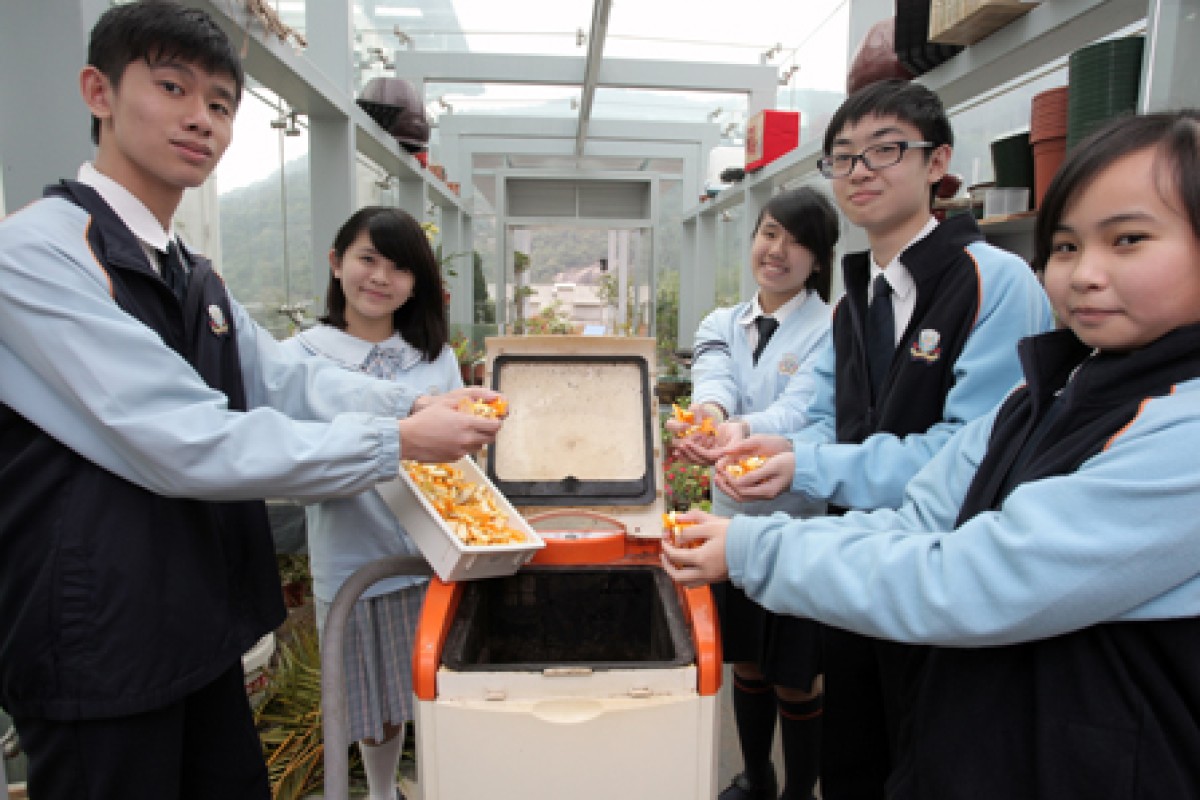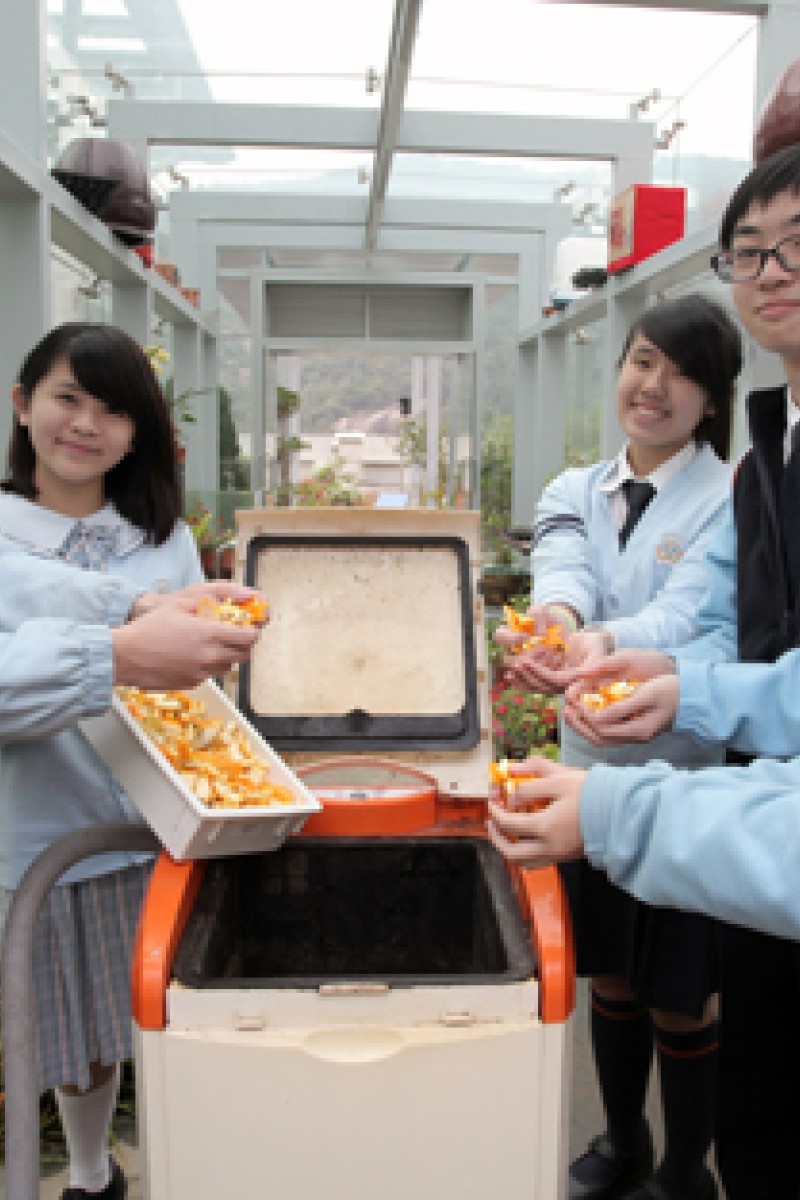 Students at Hong Kong Baptist University Affiliated School Wong Kam Fai Secondary and Primary School help out with their school's compost machine.
Students at Hong Kong Baptist University Affiliated School Wong Kam Fai Secondary and Primary School help out with their school's compost machine.Every week, school science laboratories throw away vegetables and fruit after students have finished doing experiments with them. While these food items may not be good enough to eat, they don't have to be sent to the landfill. Some schools are finding ways to make good use of leftover food.
At Hong Kong Baptist University Affiliated School Wong Kam Fai Secondary and Primary School, biology teacher Calvin Leung Tik-ka uses fruit and vegetables to make compost, which feeds plants growing in the school grounds.
His idea has been welcomed by Kung Wai-sing, the school gardener.
Kung Wai-sing placing leftovers in the school's composting machine.
"After cutting up the fruit and vegetables into small pieces, I put them in the composting machine," Kung says. "After about a day, they have turned into fertiliser. The composting machine uses heat, pressure and bacteria to make the food rot faster." Students have been helping too, cutting up the leftovers for the machine.
There's another machine in the canteen. But making compost from cooked food is more complicated than for fruit and veg. The machine cannot break down large pieces of bone, so students must remove all bones before binning their leftovers.
Leung says the students have become much more aware of food waste problems since they started using the machines.
"They get to see for themselves how food waste can be made into something useful instead of being buried in the landfill," he says.
"The composting machines is a reminder that I shouldn't waste food," says Form Five student Calvin Yip Ho-chun.
Students cutting leftovers into smaller pieces.
Meanwhile, students at Hong Kong University Graduate Association College are also learning how to reduce all sorts of waste.
The school has employed student volunteers to help separate waste that can be recycled. Food waste goes in one bin, plastic in another.
"We rinse the plastic items and put them in a bag. The plastic is then collected and recycled," says Lyndon Fan, a Form One student.
The school's food waste is collected by its caterer, who sends it to a composting machine so that organic fertiliser can be made.
Edward Garbelli, a teacher at the school, says: "The scheme allows students to educate other students about reducing waste."
And it seems to be working.
Lyndon says: "After volunteering, I saw lots of food being thrown away. I want to stop that, so now I finish all my food."
Read about our anti-food waste workshops for our Waste Not, Want Not campaign:
- Visit to South East New Territories (SENT) Landfill
- Planting crops at Fruitful Organic Farm
- Bread Run with Feeding Hong Kong to collect leftover pastries
- Visit to Hong Kong Science Park to see technology that put leftover food to new uses
- Visit to the Kowloon Bay Waste Recycling Centre to see how they turn food waste into compost
- Learn how the chefs at the Hyatt Regency Shatin use leftovers to create new dishes
